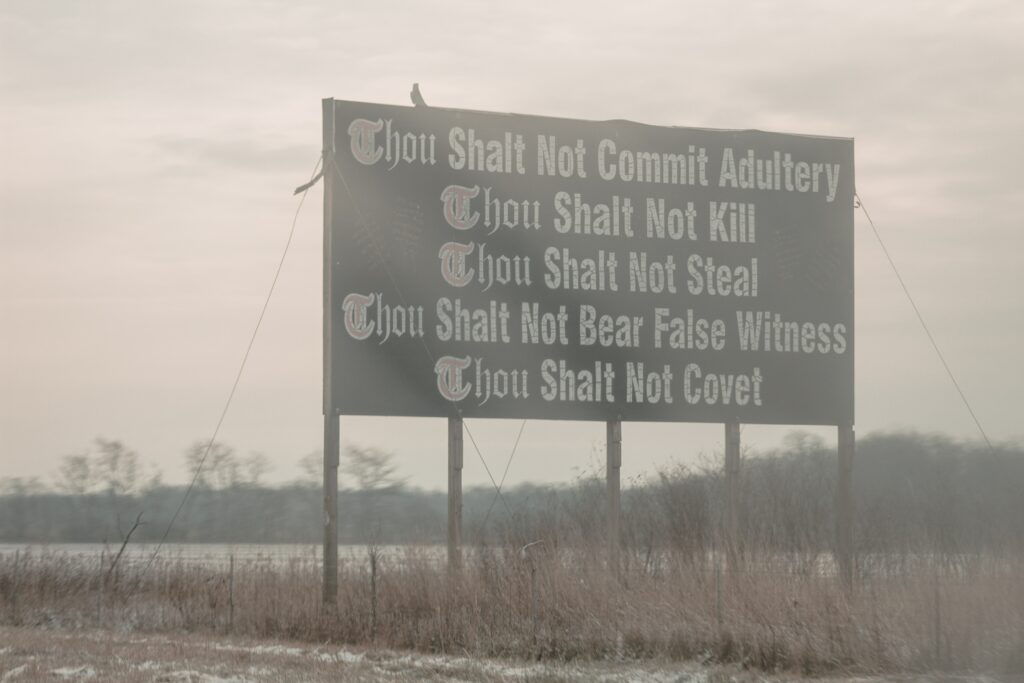
It’s human nature to focus on the Now.
Sometimes that looks like shallowness: the magazines in the checkout line at the grocery store, the obsession with celebrities, many of whom are famous for nothing more than being famous.
Sometimes it looks like self-centeredness: hoarding, the manic grasping for whatever’s right in front of you, from Tickle Me Elmo to toilet paper, before somebody else gets it.
Sometimes it looks like fear, or even despair, over the state of the world, the suffering of so many, wave after wave of insoluble problems.
There’s a difference between stewardship—doing your best to approach life’s problems sensibly and successfully—and nearsightedness. From driving a car to inhabiting the C suite in a multinational corporation, we know that it’s unwise to obsess over the immediate or to downplay the long-term view.
It’s wise to proceed with the end in mind.
For the Christian, that means staying focused on the certain divine victory.
There are many who scoff at such things. It’s pie in the sky. It’s how the empowered and privileged manipulate the masses into not revolting and casting off exploitation.
I’m not for the empowered and privileged manipulating the masses into not revolting and casting off exploitation; the prophets talk a lot about that, and Jesus speaks to it as well. But I would argue that thinking eschatologically is not in fact pie in the sky, and it’s not properly used to manipulate the unempowered.
It’s not only a worthwhile occasional exercise; it’s the only way of life that makes any sense.
I’ve written here before on the difficulty of developing an eschatological system, because the prophetic genre is inherently and intentionally clouded; God intends that the prediction not be fully understood until it is fulfilled. I speculate that one reason he might do that is so that the outcome—and the accuracy of the prediction—would have maximum impact on the audience. If you’ve been trying unsuccessfully to figure out a puzzle for centuries, then the resolution is going to hit you like a ton of bricks.
That’s essentially what educators call discovery learning, and in my experience it’s the most impactful kind. When a student learns something for himself, he considers it his own personal property, and he’ll remember and use it for a long time—often for the rest of his life.
But even though interpreting the Bible’s eschatological material is difficult, and even though we’re unlikely to figure it all out ahead of time, and even though we have to come to our conclusions humbly, it’s still worth studying the material—first, because it’s Bible, and going to the metaphorical gym in your study of Scripture is a means of grace, building spiritual muscle in you; and second, because in this area of theology, as in all others, God has made the important stuff, the stuff necessary for now, clear enough. There are some things of which we can be certain.
I’d like to spend a few posts investigating how it all ends. There are significant arguments, as we would expect, over the path we follow to get there, and when that will happen, but the main truths of how it ends are pretty clear. And thus it’s equally clear how we should live now in light of where we’re headed.
I’ll note that while there’s quite a bit of biblical material on what we call the millennium, that material suffers from the same clarity problem that other prophecy does. Bible students can’t agree on whether the millennium is real or symbolic; whether it lasts a thousand years or something else; whether it’s in heaven or on earth; or even whether Christ is visibly ruling or not.
I’ll note that I have an opinion on all this—I’m premillennial, and I have what I think are good reasons for holding that position—but if it turns out that God has some other approach in mind, I’m not going to be overly surprised, and I’m not going to go all Peter at Caesarea Philippi (Mt 16.22-23) and try to change his mind.
So my concern in this series isn’t the millennium; I’ll let the millennium take care of the things of itself. I want to look at the very end, after everybody’s eschatological system has been either confirmed or, more likely, corrected. What then?
We have very little biblical material on that—what theologians call the eternal state, and what most people refer to, accurately or not, as “heaven.”
Next time we’ll see what we can wisely discern from that little bit of material.
Part 2: Anticipating the Then | Part 3: Living in the Now—Confident Expectation | Part 4: Living in the Now—Patient Endurance | Part 5: Living in the Now—Diligent Occupation
Photo by Aaron Burden on Unsplash


